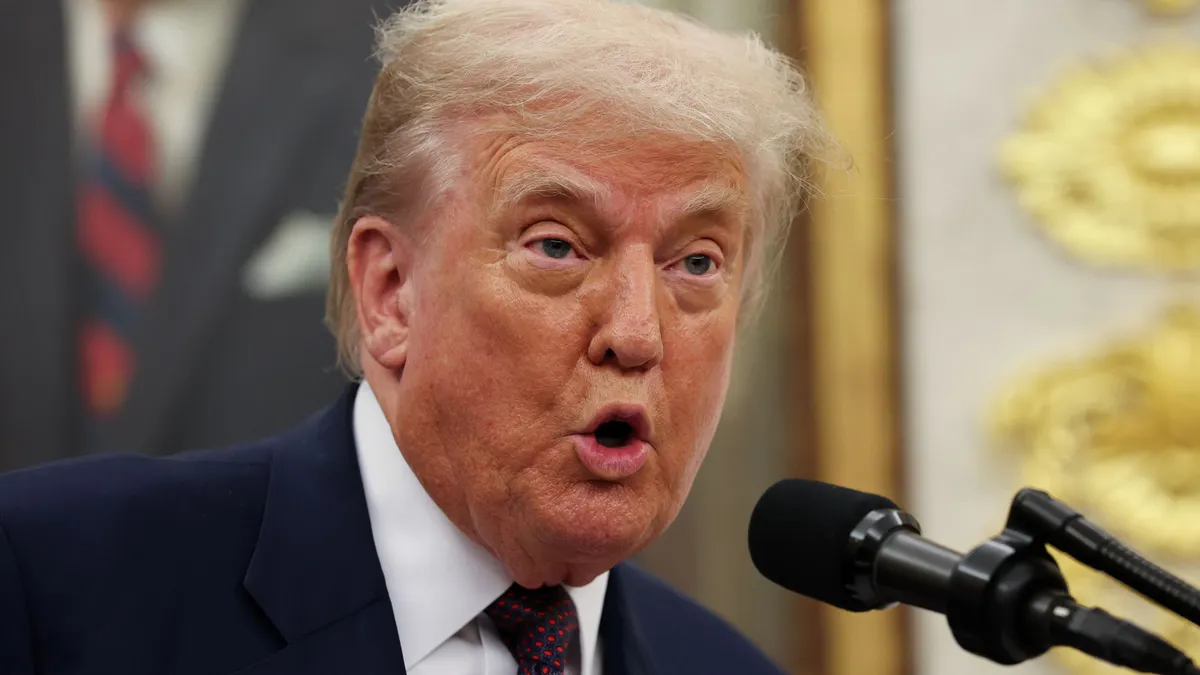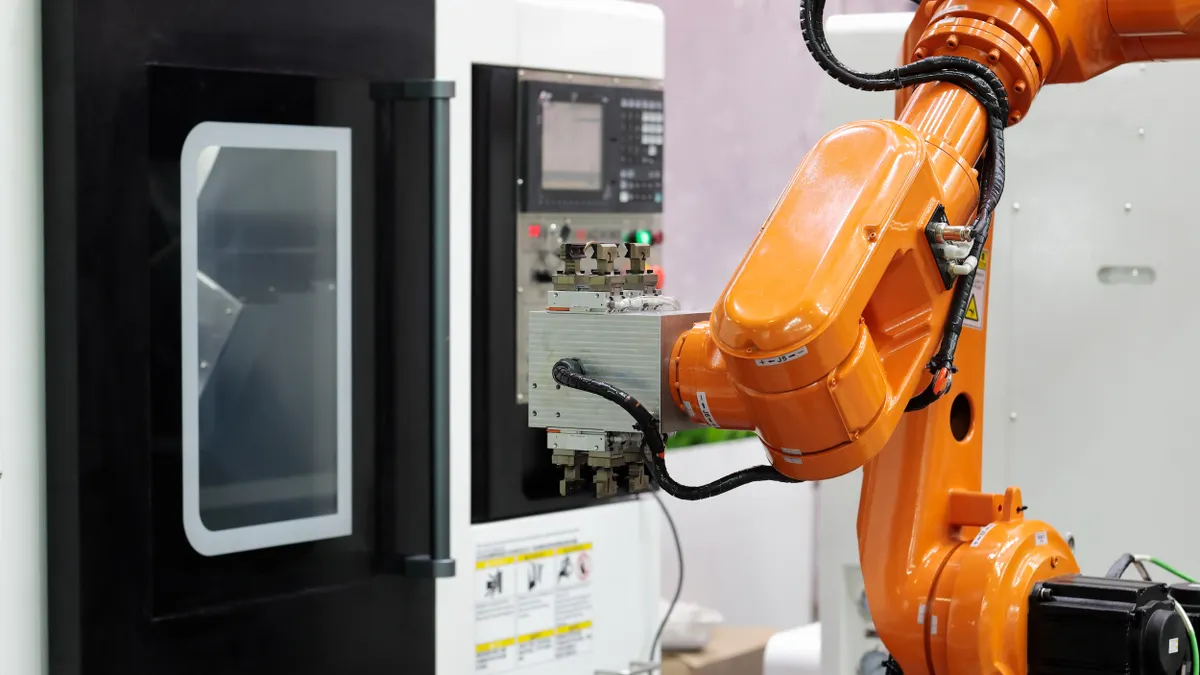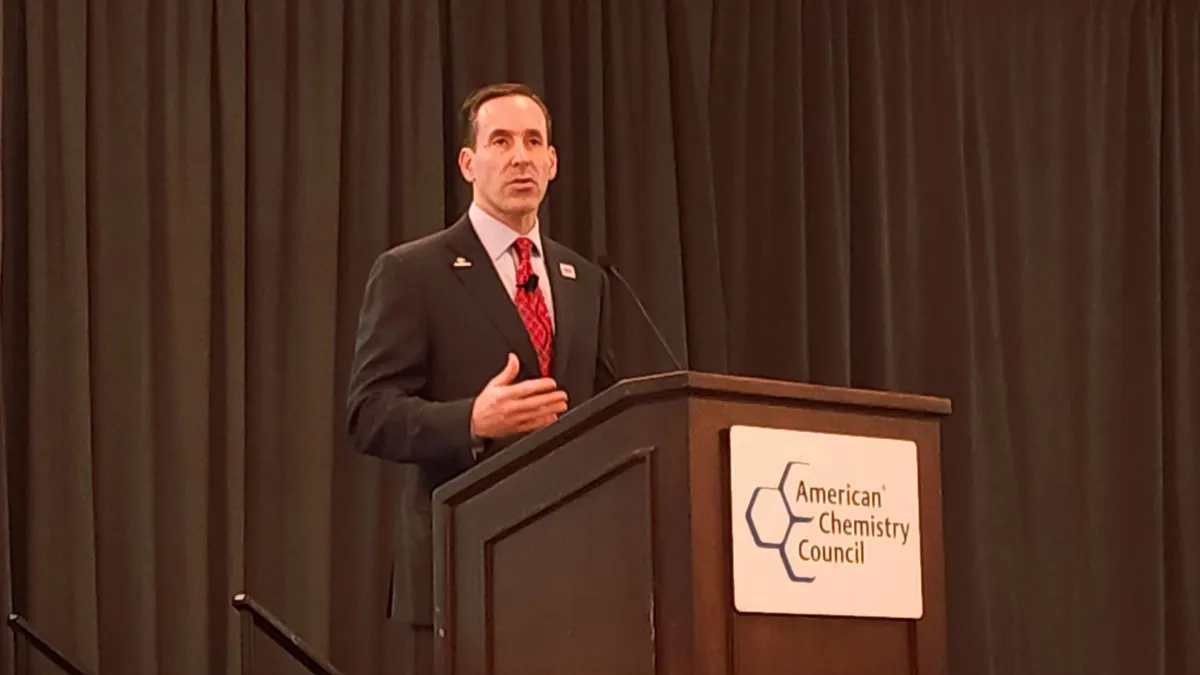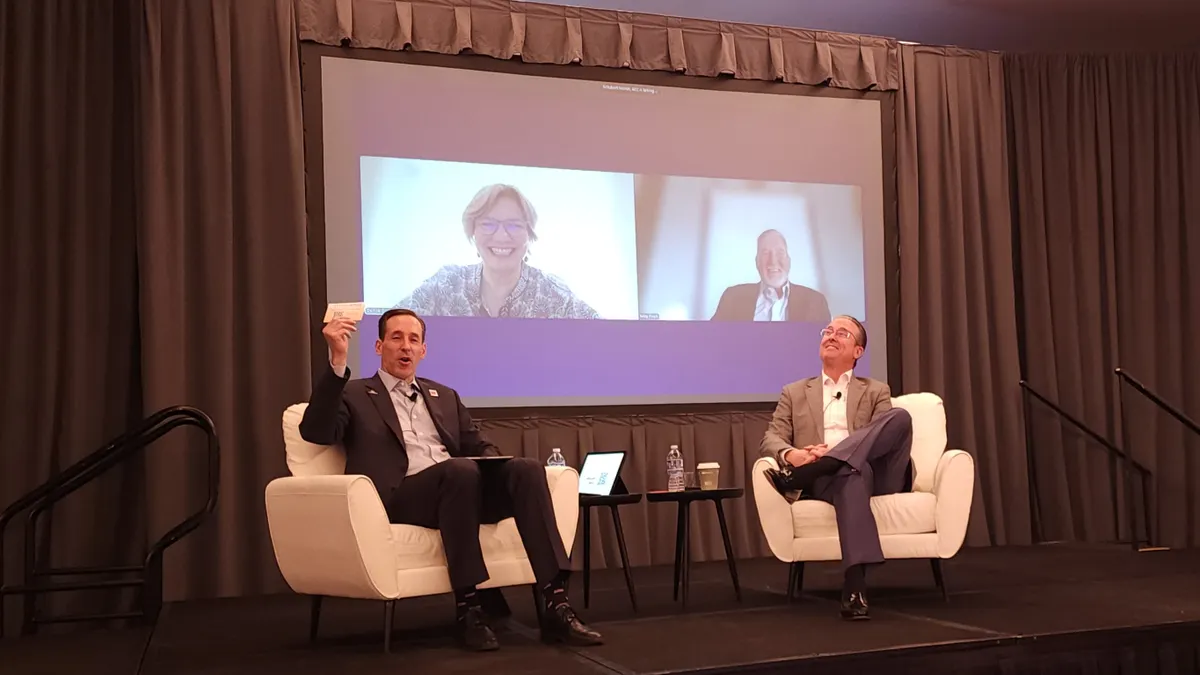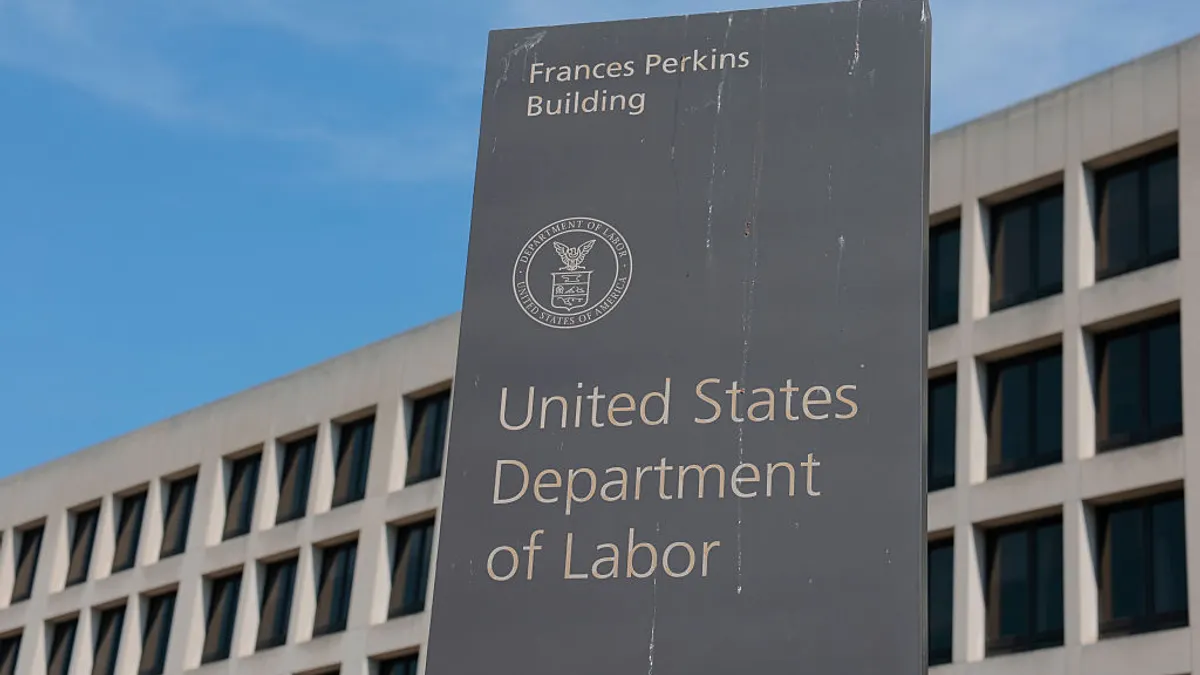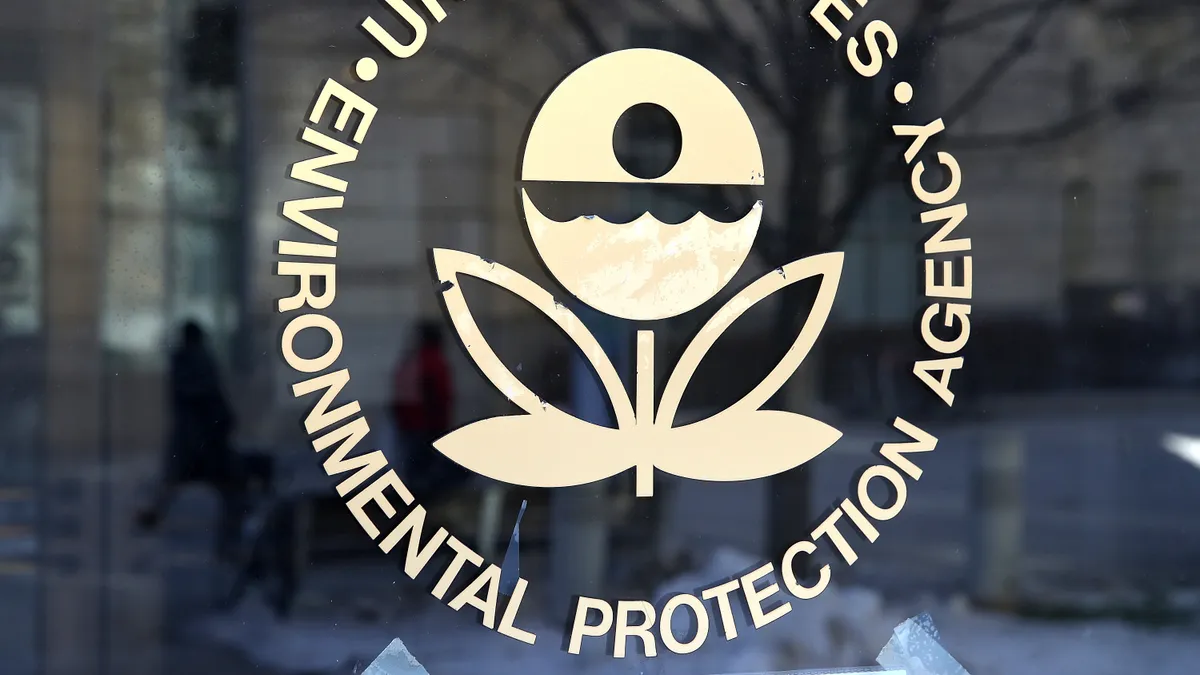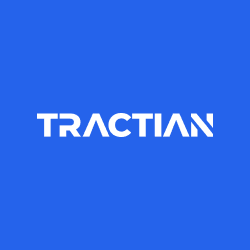Chipmakers and industry associations are showing mixed support for President Donald Trump’s proposed 100% tariffs on semiconductor imports.
During a press event at the Oval Office with Apple CEO Tim Cook, Trump said Wednesday that “there will be no charge” for companies that are doing business or building capacity in the United States. He also warned companies will be charged if they lie about their plans.
“You have to pay. And that’s a guarantee,” Trump said, adding later, “I think the chip companies are all coming back home.”
The Semiconductor Industry Association, a D.C.-based trade and lobbying group, expressed support for the 100% tariff on chip imports, saying it looks forward to learning more about the exemption details.
“Trade is critical to American semiconductor leadership. And so we hope the tariff exemptions and future trade deals are designed to ensure the U.S. semiconductor industry retains its pole position in the race to be the most globally competitive,” SIA President and CEO John Neuffer said in a statement Thursday.
“We are eager to learn more about the President’s plan for semiconductor tariffs, including the scope and structure of exemptions for companies manufacturing in the U.S.,” Neuffer added.
The effort builds on the president’s America First agenda to grow domestic manufacturing, in part by pressuring companies to reorient their supply chains and operations via increased tariffs. In recent months, Trump has negotiated with a number of world leaders for exemptions to his country-specific “reciprocal” tariffs, which went into effect Aug. 7. In addition to chips, Trump has also threatened 250% tariffs on pharmaceutical imports.
GlobalFoundries, a New York-based chipmaker with manufacturing in Germany and Singapore, is “monitoring the situation closely,” a spokesperson said. However, the company provided no comment as there is no official policy proposal published yet.
Taiwan Semiconductor Manufacturing Co., the world’s largest contract chipmaker, did not respond to a request for comment. The company has been in Trump’s good graces after pledging to invest $100 billion in March to expand its U.S. manufacturing capacity. It completed construction of a second fabrication plant in Phoenix this year, and broke ground on a third fab in April. TSMC produces chips for several U.S. companies, including Apple, AMD and Nvidia, with plans to ramp up additional capacity over the next five years.
Nvidia, which contracts out its Blackwell chip designs for production at TSMC’s Phoenix location, declined to comment.
On the other end of the spectrum, Reuters reported that Dan Lachica, president of the Semiconductor and Electronics Industries in the Philippines, said Trump's plan would be "devastating" for his country.
In Malaysia, a global leader in chip testing and packaging, trade minister Tengku Zafrul Aziz warned parliament his country “will risk losing a major market in the United States if its products become less competitive as a result of the imposition of these tariffs,” Reuters also reported.
Trump calls for resignation of Intel’s CEO
Meanwhile, Intel CEO Lip-Bu Tan, who has been on a cost-cutting spree since taking over in March, recently came under fire from Trump over his qualifications to lead one of the largest U.S. semiconductor companies.
“The CEO of INTEL is highly CONFLICTED and must resign, immediately,” Trump posted Thursday morning on his social media platform Truth Social. “There is no solution to this problem. Thank you for your attention to this problem!”
Under the leadership of Tan, a former executive at chip software maker Cadence Design Systems, Intel has stated plans to reduce its global workforce by 25%, exit multiple international construction projects and decelerate its ongoing chip fab project in New Albany, Ohio. The CEO has also recently faced criticism for certain alleged ties to China.
Arkansas Sen. Tom Cotton raised national security concerns in a letter dated Aug. 5, saying Tan “controls dozens of Chinese companies” and has stakes in hundreds of China-based advanced manufacturing and chip firms.
He also said Tan oversaw his former company Cadence during a period of “illegal activity.” Last week, Cadence pleaded guilty to selling its software to a restricted military university in China. It agreed to pay a fine of $140 million.
In a memo to employees, Tan addressed Trump’s comments and allegations, saying “there has been a lot of misinformation circulating about my past roles.” Despite these pressures, Intel is on board with his America First agenda.
“We are engaging with the Administration to address the matters that have been raised and ensure they have the facts,” Tan said. “I fully share the President’s commitment to advancing U.S. national and economic security, I appreciate his leadership to advance these priorities, and I’m proud to lead a company that is so central to these goals.”



